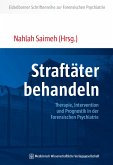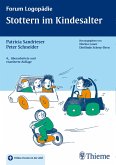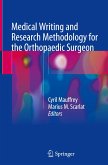Educators often face the pressure to address children's medical needs within the school setting, but sometimes find themselves having to make difficult decisions without adequate training, support, or information about important pediatric issues. When faced with a medical question, many may turn to the Internet where information is sometimes reliable, sometimes not. This concise and well-researched investigation into psychiatric health issues provides credibility and verifiability of data and establishes a foundation of confidence for any educator who must make policy, differentiate instruction, provide educational accommodations, offer special education services, collaborate with families, and work with the community to serve to children's medical, physical, and psychological needs. Written for school psychologists, counsellors, administrators, and teachers, this highly practical and easy-to-understand reference describes genetic, chromosomal, and acquired disorders and discusses behavioural issues that may manifest themselves in classrooms as well as treatment options and intervention strategies. Readers will find: - A section on neuropsychiatric conditions that affect the most children and result in the most common questions directed at educators, including Tourette syndrome, bipolar/mood disorders, and separation anxiety disorder - A section on psychopharmacology that discusses the use of atypical antipsychotics and autism, treating tardive dyskinesia in children, medical management of ADHD, polypharmacy prescription practice, and side effects of common health medications - A section on dietary control and supplement use that includes dietary treatments for autism, identification and treatment of eating disorders, and use of steroids in adolescence Each chapter includes a case study, parent handouts, and a literature review based on the latest and most reliable scientific research.
The educator's go-to reference for important psychiatric health topics! This concise, well-researched volume provides school psychologists, counselors, administrators, and teachers with a balanced perspective on the most relevant psychiatric issues in schools today. The book covers: Neuropsychiatric conditions that commonly affect children and questions frequently directed to educators Psychopharmacology, including the use of atypical antipsychotics and autism, the treatment of tardive dyskinesia, the medical management of ADHD, and side effects of common health medications Dietary control and supplement use, the identification and treatment of eating disorders, and use of steroids in adolescence
Hinweis: Dieser Artikel kann nur an eine deutsche Lieferadresse ausgeliefert werden.
The educator's go-to reference for important psychiatric health topics! This concise, well-researched volume provides school psychologists, counselors, administrators, and teachers with a balanced perspective on the most relevant psychiatric issues in schools today. The book covers: Neuropsychiatric conditions that commonly affect children and questions frequently directed to educators Psychopharmacology, including the use of atypical antipsychotics and autism, the treatment of tardive dyskinesia, the medical management of ADHD, and side effects of common health medications Dietary control and supplement use, the identification and treatment of eating disorders, and use of steroids in adolescence
Hinweis: Dieser Artikel kann nur an eine deutsche Lieferadresse ausgeliefert werden.








